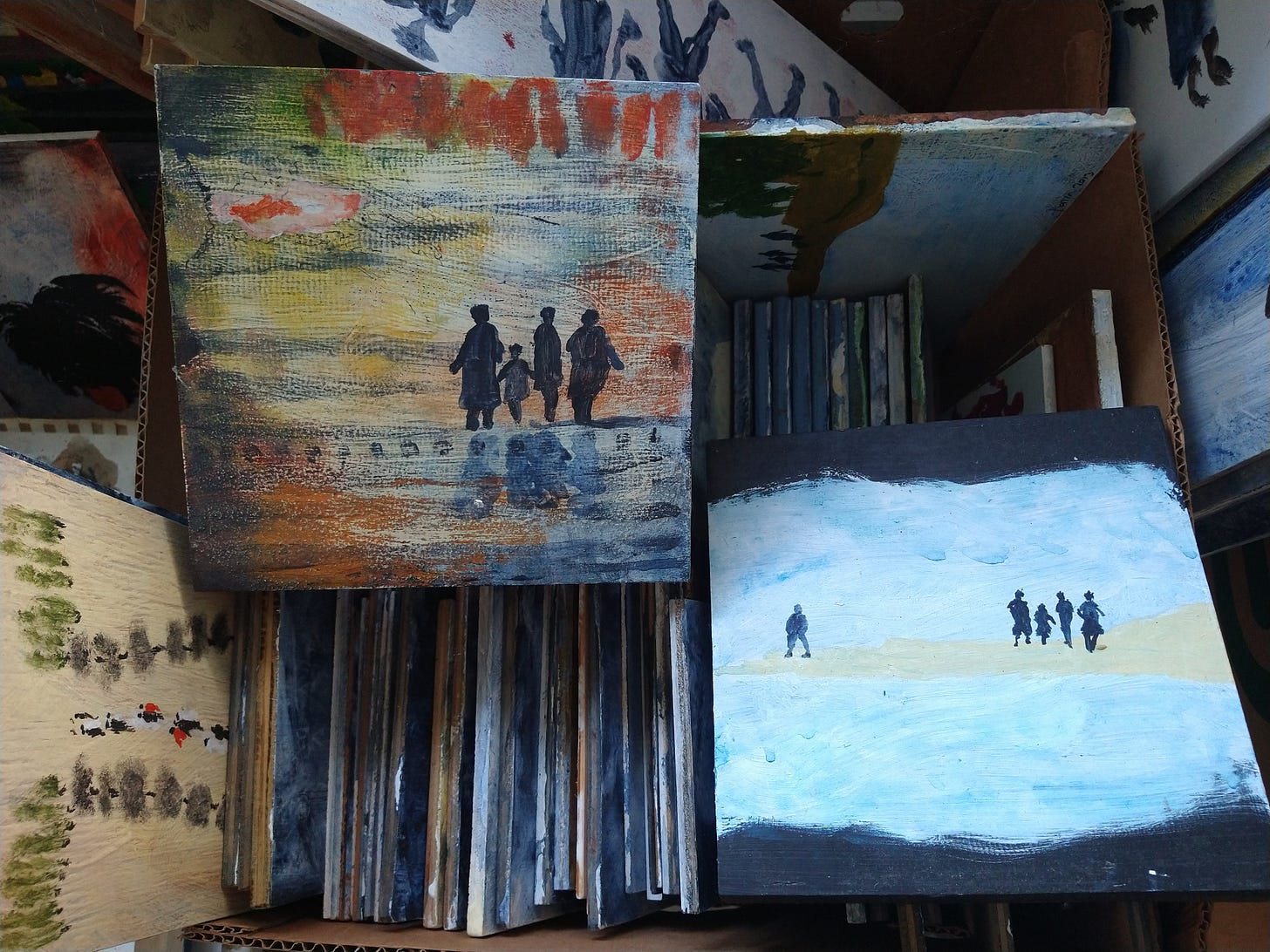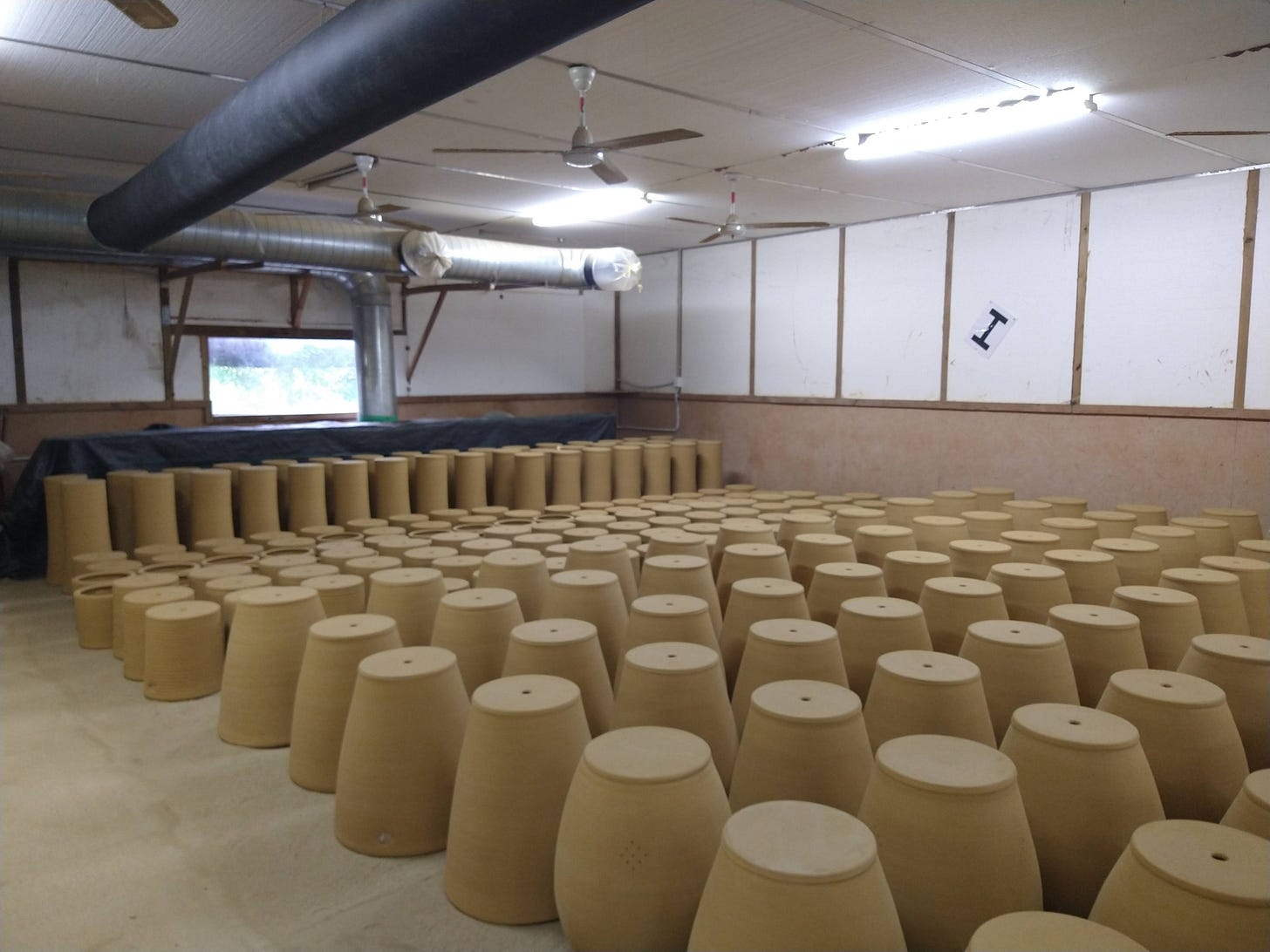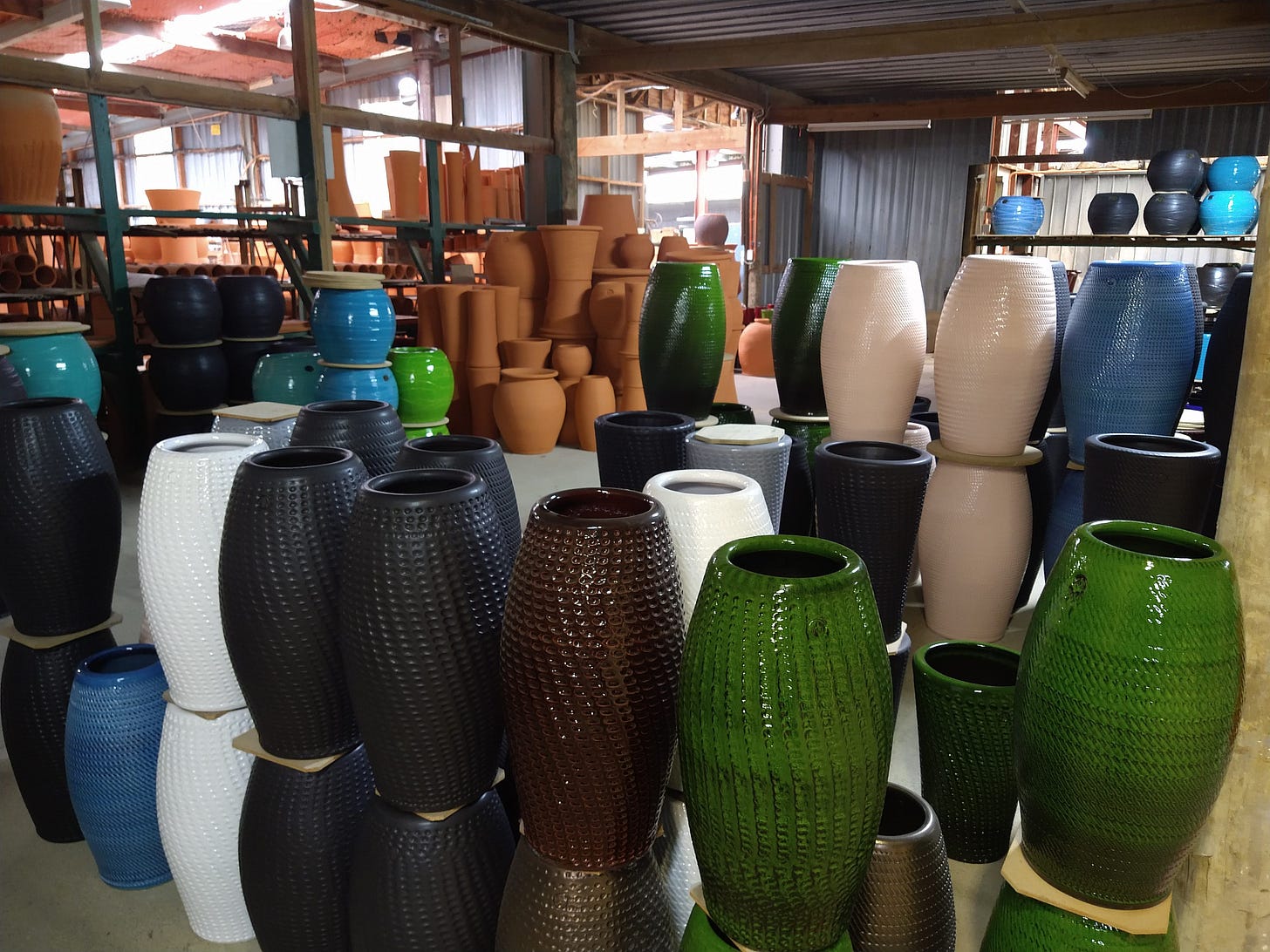What will be your body of work?
Reflections on three weeks at the Morris & James Pottery in Matakana, NZ
A few weeks ago my sister was giving me a mini tour through the estate of Morris & James, her father-in-law’s idyllic, expansive property where she and her husband have lived the last three years.
Here the poolhouse and sauna, with the outdoor shower. There the workout and meditation room, separated from the main house to ensure uninterrupted peace and quiet. Over here, her father-in-law’s private pottery, where he still works on personal projects and an assistant helps fire them in the kiln. Next door, the studio where he still paints, hundreds of small canvases filed onto floor-to-ceiling shelves, paint and supplies spread out across tables.
I looked gently through some small paintings and came to these two:
I loved them. They made me feel something right then and there, the beauty and the sadness, the aloneness. Were these families? Together, and alone—was that the wilderness? A storm or a haze of fog on the left, and maybe a blizzard on the right? I gazed for a few moments longer and wondered, who is the person separate from the group in the one on the right?
And then I turned back to the studio and the shelves: there were so many more paintings, all simply tucked away here.
I turned to my sister. She had shown me around the property, though we had yet to get to the actual commercial pottery, a business still very much in operation, which he had sold years ago to the employees to keep operating on the property.
It’s quite a body of work, I said. Quite a legacy.
She nodded—indeed.
I never met her father-in-law, Anthony (or, Ant) Morris. By chance, he had gone to visit his daughter in Europe at the same exact time I had come visit my sister and her husband and their three kids here. He wasn’t around, and yet his work was all around. It was even in the town of Matakana, a short walk down the road, where steps down to the farmer’s market were made from tiles designed, fired, and glazed by Morris & James.
The raw material for the pottery comes from the banks of the river on the property. That was a tour for another day, along with my son, and my sister and her kids, the three toddlers waddling down the paths and across the grass, taking care not to go in puddles above the height of their rain boots.
Here the off-grid cabin, where Ant sometimes comes to read, nothing but a table, a notebook, and a small room with a bed in the corner for afternoon naps. There, the beautiful 2-bedroom eco-home he’d designed as a retirement property for himself—before he decided to simply build an extension to the main house he’d raised the kids in all along.
Finally, on a third day, my brother-in-law gave us a tour of the commercial pottery, a gigantic, cavernous industrial space with at least half a dozen different areas each devoted to different parts of the process, from shaping the clay, to pressing and forming the pots, to drying and glazing.
The whole tour was a treat. I’d never seen anything like it—I’ve never really had cause to go tour a commercial pottery.
He and his siblings had worked there as kids, learning the craft, trying to absorb the art. Each, in their adulthood, has become an entrepreneur in their own way, with varying levels of success. And the astoundingly successful creative and commercial legacy of their father looms—that much is incontrovertible.
I had to admire the legacy. Anyone would.
It was more creative output, more creative work that you can feel and touch and hold in your hands, than most of us will ever leave behind. Not everyone has to be an artist or a craftsperson—some build companies, or homes. Some care for patients, leaving a legacy of healing. Others teach, leaving a legacy of lives changed, minds formed. Some invent. Some explore. There are a lot of ways to leave something behind, something that lasts. Yet here, surrounding me, was legacy in the flesh, fired into pottery. No matter what happened to the business, or the property, the pottery was there—and pottery lasts.
Walking around the Morris & James estate, it wasn’t hard to feel inadequate. Where was my body of work? What would be my legacy?
Unfortunately, I didn’t meet Ant. I do have a present from him, though, which he sent over a year ago, after having asked my sister to pick something from his collection she thought I’d like. He sent me this:
It sits next to my desk. For someone with do not go gentle tattooed onto my arm, it was a touching present.





